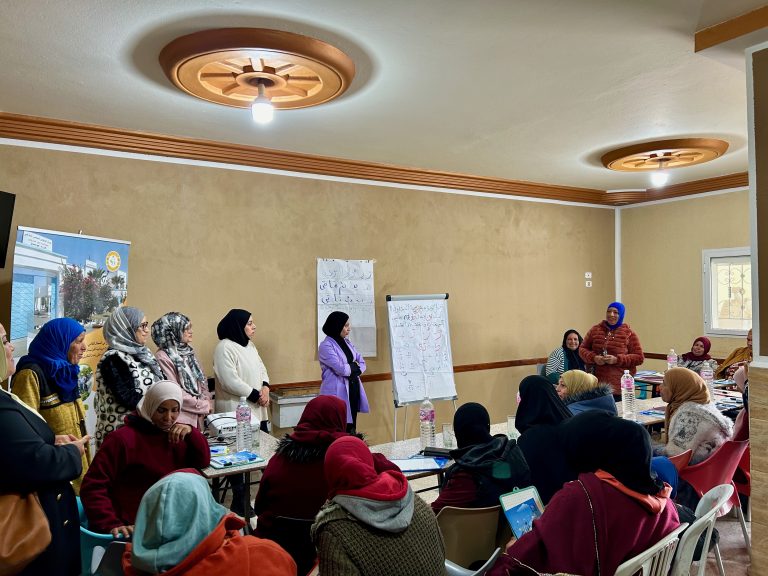CEP-ALPHA Project bringing education and innovation to rural communities in Tunisia
15 May 2024 | DVV International Tunisia | DVV International Tunisia ALE Community Learning
Tunisia

The CEPa (CEP-alpha) project was launched in 2020 in the governate of Manouba in the north east of Tunisia. The project is being conducted in collaboration with the Ministry of Agriculture, Fisheries, Rural Development, Water and Forestry.
The project introduces the participants to new concepts and approaches which they then put to practical use. The participants already possess a wealth of agricultural knowledge due to their practical experience as farmers, but they may lack a grasp of certain concepts or techniques to take their production to the next level. However, introducing new concepts can be challenging, especially if the participants possess a low level of literacy. To overcome this, the CEPa Project makes use of something called the semio-didactic methodology. In short, this methodology uses signs and symbols to represent different words or concepts. In this way, new ideas can be understood even by those with literacy challenges.
For example, when discussing essential oil distillation, participants may already be familiar with some traditional methods but lack knowledge of newer distillation techniques. They may also lack access to distillation equipment or rely on outdated methods. In this case, the training focuses on learning how to use modern distillation equipment and makes use of the semio-didactic approach to convey new ideas and concepts through the use of signs and symbols agreed upon and familiar to the group.
The initial training cycle concluded in 2022. Due to its success, the experiences of the project were compiled into work guides in 2023 and a seminar was held to share and showcase the project’s achievements with stakeholders and partners. These guides included methodological guidelines to the approach, as well as guides to beekeeping, chicken rearing, management of olive trees, aromatic and medicinal plants and sun-dried tomatoes.
In 2023, the project was replicated in the governate of Ben Arous close to the capital Tunis. This cycle is due to conclude in 2024, after which the project plans to expand to other regions. Target areas are identified based on the education needs of farmers in the area, and varies from one region to another based on the local needs and context. For instance, some regions may grow aromatic plants while others may not. In Ben Arouss, for example, the training focuses specifically on beekeeping and drying figs because these are the primary activities of the local population. The training is tailored to meet the needs of local farmers and utilize the resources available in each region. The project plans to keep expanding to new areas of the country as long as there is a need for adult learning and education (ALE).
Watch a video in Arabic about the CEPa Project here.